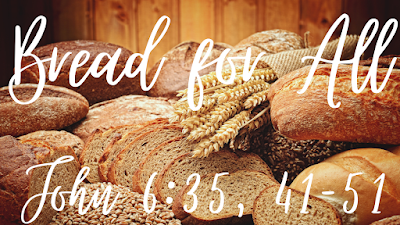We Are Witnesses - Acts 5:27-32 (Easter 2C)
A little background on this week’s reading: The apostles, starting in verse 12 of this chapter, are teaching and doing “signs and wonders” in the temple. Peter is getting to be known, almost as a celebrity for teaching and preaching on the Gospel, so the religious authorities have them put in jail. The priests want to question the apostles about what they are doing, and find that they have escaped (via an angel of the Lord) to continue preaching and teaching about the Good News. They are “non-violently” re-arrested, and they are currently standing trial as our scripture begins.
Our story this morning is part of a bigger story, which goes clear through verse 42, which I’ll let you read at your own time, because this is the part I’d like to focus on today. We have a quick back-and-forth with the priests and the apostles because they each kind of have their own agendas.
Imagine being one of these apostles. They were given the task of preaching the Gospel, but now they end up in a trial by those who were the same ones who condemned Jesus to die. What do you think they were feeling and thinking? Well - that was a good run, guess it's time that we close up this tour and head back to Galilee? I don't think that may have come across their brains, but maybe - who knew what they thought about being in this much trouble? How have you felt when you get in trouble, maybe even as a teen, for doing something that you knew was right?
I have not had too many run-ins with the law. I have never spent the night in jail. My interaction with law enforcement has been limited, thankfully enough, to speeding tickets because there's been a couple, JUST a couple of days where my toes seem a little heavier than the rest of my foot.
But our story today isn't really about the disciples. Isn't it more about the Sanhedrin, the officials who are questioning them? The rule-makers wanted to make examples out of these people who were so close to Jesus, who they had already "taken care of". This was a plot of revenge, clear and simple. They knew they had the power to make the disciples' lives miserable, just for being associated with the man so claiming to be God. This was power and jealousy paired together in the worst ways.
But did these rule-makers have any real authority over the disciples? I mean, they couldn't keep them detained. They couldn't silence them. The leaders even say in verse 28, "you have filled Jerusalem with your teaching and are determined to make us guilty of this man's blood!"
I could see Peter wanting to come back with... "what are you so guilty about? I did no such thing." What he actually says though is telling - "We must obey God rather than any human authority." Peter quashes any idea of these "leaders" having any authority over them. He wants them to know that, despite all the animosity between the two groups, the apostles still have hope and faith for their salvation. He leans in during his confession in the last three verses: "The God of OUR fathers".. saying that we share the same background, we worship the same God... "Raised up Jesus. whom you had killed" - God was the one who sacrificed his Son, not you; we are not blaming you. This is the way he knew it would happen, and so there is forgiveness in what you had to do, you leaders have no authority over life and death, as much as you think you do.
Which brings us to some interesting questions - these may be more philosophical and rhetorical than practical. But what's someone to do when people who write laws targeting people who have no access to confront those laws? These verses were critical in being theological evidence from Luther's speech defending his theses which started the Reformation, and Dietrich Bonhoeffer's plot against Hitler in WWII, Dr. King's march on Selma, and even to the clergy in and around Ferguson, Missouri and Charlottesville, Virginia five years ago, when protests broke out in those cities.
Where's the line between having authority and overstepping the boundary? Authority could be something as simple as having read and studied enough about a topic to write a book, or to give a speech, and defend what you're saying. But when you believe you have absolute authority that you control life and death itself... that kind of power is corrupting, eating your soul.
But what does it mean to obey God rather than human authority? Well - doesn't that mean you need to know your scriptures and to know what God deems as faithful obedience? Each of you sitting here have been moved to be here today. It wasn't that you just woke up and had nothing better to do, drive around until you settled on our little church. This was a conscious decision. For those of you who have been here more than once, there's something here you've witnessed to make your life better. You've witnessed the power of the Holy Spirit in this place. And you can't just look away, and you want to be close to it.
So where then does one find this boldness that the apostles share? One hopes, at least, in the pulpit. I’ve been called to maybe not tell you what you want to hear, but the words that God has placed on my heart. People come to church expecting to hear words that may not be spoken anywhere else, and you can do with these words whatever you will. But I try to inspire love and hope that will carry you until we meet again.
Declaring, with Peter, that “We are witnesses” may be an identity statement, but it is also an action statement. Dr. Darryl Stephens in Bearing Witness in the Kin-dom: Living into the Church’s Moral Witness through Radical Discipleship (United Methodist Women, 2021) writes, “the moral witness of the church encompasses our participation as Christians in God’s response to suffering and injustice in light of what we believe about God and God’s intention to reconcile all creation” (p.3). To be a witness is to step up to the plate and acknowledge that the kin-dom looks different from what we see around us today. And we want to be part of the effort that moves us closer to what God intends for human community to be. Stephens declares that this is not an optional task, but the responsibility of all who claim a place in the family. “Beginning with the sacrament of baptism,” he argues, we focus “upon what it means to follow Christ in a broken world and to join in God’s mission. Moral witness is a ministry of all of the baptized” (p.4).
As Christians, we have a calling: to make disciples of Jesus Christ so the world is transformed. Because the world is not perfect, we are not perfect, and the people hearing the message are not perfect, sometimes this calling can be difficult. One thing that we can take from this scripture is how the disciples continue to let God’s gifts and triumphant story shine through their speech. But you know what, God’s gifts shine through their actions as well. The disciples had each other to lean on in times of need, just as you offered support in the second round of Jenga (or two truths and a lie). God exalted Jesus—this means to lift up. We can be powerful witnesses and supporters who lift each other up in the midst of the brokenness of our world.
When challenged, when asked why we continue in the charade of faith, as some are calling it, what will you say and how will you say it. Peter suggests we start with the simple declaration, “We are witnesses.”




Comments
Post a Comment